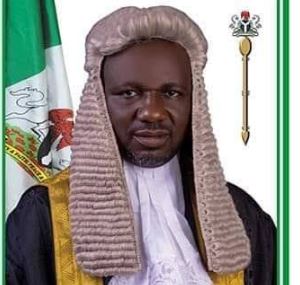The political landscape of Benue State, Nigeria, witnessed a significant shift with the resignation of Hyacinth Dajoh from his position as Speaker of the Benue State House of Assembly. Dajoh, who held the speakership for a brief period from June 5, 2023, to August 24, 2025, stepped down amidst swirling rumors of an impending impeachment orchestrated by a faction within the Assembly. His departure paved the way for the swift ascendance of Alfred Emberga, a previously suspended lawmaker, to the speakership. Dajoh’s resignation marks a notable turning point in the state’s political dynamics, prompting questions about the underlying factors that led to his departure and the potential implications for the stability and direction of the House of Assembly.
In the aftermath of his resignation, Dajoh adopted a conciliatory tone, emphasizing the need for peace and unity within the state. He expressed gratitude to various individuals and groups for their support during his tenure, including his constituents, fellow lawmakers, Governor Hyacinth Alia, and his wife. Dajoh’s public acknowledgement of these individuals underscores the importance of maintaining positive relationships within the political sphere, even amidst shifting alliances and power struggles. His call for peace suggests a desire to move forward constructively and avoid further escalation of tensions within the Assembly.
Dajoh’s tenure as Speaker, though short-lived, was marked by a complex interplay of political forces. His election to the position on June 5, 2023, signaled a new chapter in the state’s legislative leadership. However, the subsequent emergence of internal dissent and the rumored impeachment plot highlighted the inherent challenges and vulnerabilities of holding such a prominent position within a dynamic political environment. The speed with which Emberga was sworn in as his successor suggests a pre-arranged transition, further fueling speculation about the orchestrated nature of Dajoh’s departure.
The circumstances surrounding Dajoh’s resignation raise several crucial questions about the inner workings of the Benue State House of Assembly. Was his decision truly voluntary, or was he pressured to step down to avoid a potentially damaging impeachment process? What role did Governor Alia play in these events, given Dajoh’s public expression of gratitude for the governor’s support? The answers to these questions will be crucial in understanding the broader political context and the implications for the future direction of the Assembly.
Dajoh’s public statement, released via his Facebook page, served as a platform for him to express his gratitude and call for unity. He specifically thanked his constituents in Gboko West for their initial support in electing him to the Assembly. He also acknowledged the support of his colleagues who voted him into the speakership, emphasizing the importance of their backing during his time in office. These expressions of gratitude highlight the significance of maintaining strong relationships within the political arena, even in the face of adversity.
Furthermore, Dajoh’s message extended beyond the political sphere to encompass his personal life. He offered heartfelt appreciation to his wife, Kundumiyol Dajoh, for her unwavering love and support throughout his tenure. This personal touch reveals a more human side to the political figure, emphasizing the importance of family support in navigating the challenges of public life. Dajoh’s concluding remarks, urging peace and forward momentum, signal his intention to move on from this chapter and contribute to the continued progress of Benue State. His words resonate with a sense of resilience and a commitment to serving the people, even outside the formal confines of the speakership.


